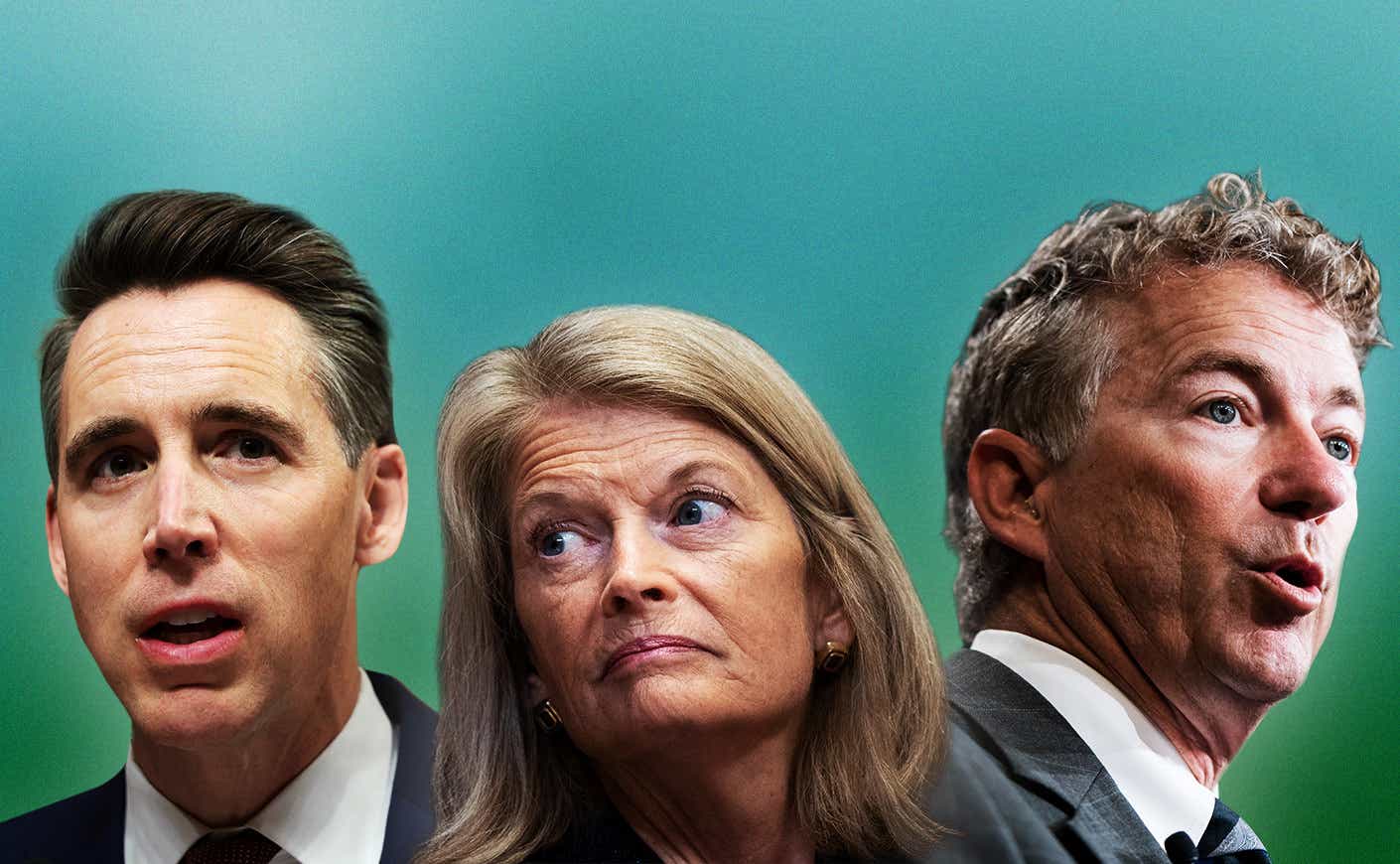The Senate is back in session — and facing a steep challenge right out of the gate. At the top of its agenda: President Trump’s sweeping tax and immigration package, dubbed the One Big Beautiful Bill.
Republicans are aiming to pass the House-passed bill by July 4, but that timeline is already slipping. A number of GOP senators — including Rand Paul and Lisa Murkowski — have raised red flags, particularly over the bill’s hefty price tag. A fresh estimate from the nonpartisan Congressional Budget Office finds it would add $2.4 trillion to the deficit over the next decade, further fueling unease.
The stakes are high. The outcome could reshape everything from border enforcement to corporate taxes, and test just how unified Republicans really are heading into the 2026 midterms. House Speaker Mike Johnson has even crossed the Capitol to urge Senate Republicans to stay in lockstep and make “as few modifications as possible.”
Here’s a look at the internal pushback — and the parts of the bill causing the biggest rift.
Kentucky Sen. Rand Paul
Kentucky Sen. Rand Paul has emerged as one of the loudest Republican critics of Trump’s sweeping budget plan, arguing it would send the national debt soaring.
“There’s no one left in Washington who cares about the debt if I vote for this,” Paul said Sunday on Face the Nation. “The GOP will own the debt once they vote for this.”
His concern isn’t without merit: the House-passed bill raises the debt ceiling by $4 trillion, while a Senate-approved blueprint from earlier this year calls for a $5 trillion increase. But as Paul argues, "the math doesn’t add up."
Instead of backing the full package, Paul is pushing a more limited alternative: a $500 billion short-term debt ceiling hike that would buy time for Republicans to confirm whether promised spending cuts are actually being enforced.
Still, Paul’s opposition has drawn the ire of the president, who wrote on Truth Social that Rand “never has any practical or constructive ideas.”
Alaska Sen. Lisa Murkowski
Alaska Sen. Lisa Murkowski is sounding the alarm over proposed changes to Medicaid, a program she says is vital to her state and not equipped for what’s coming.
She’s particularly concerned about new work requirements, warning they could be “very challenging, if not impossible” to implement given Alaska’s outdated administrative systems.
The legislation, passed by the House, would require childless, nondisabled adults ages 19 to 64 to meet work requirements to maintain coverage. It would also require states to conduct more frequent eligibility checks — a provision Murkowski fears could disrupt care for vulnerable residents, especially in tribal communities that rely heavily on Medicaid.
Missouri Sen. Josh Hawley
Missouri Sen. Josh Hawley is a somewhat unexpected voice of dissent on this issue, given his close alignment with President Trump.
But he's sounding alarms about potential Medicaid cuts — particularly their impact on low-income Americans and rural communities.
In a New York Times op-ed earlier this month, Hawley called “slashing health insurance for the working poor” both “morally wrong and politically suicidal.” He’s also criticized efforts to freeze provider taxes, warning it could force rural hospitals to shut their doors. “If rural hospitals close, what’s the difference between that and a benefit cut?” he said.
And Hawley hasn’t stopped at statements. Earlier this year, he joined Sen. Murkowski and Sen. Susan Collins in supporting an amendment to strip a directive from the budget resolution that would have instructed lawmakers to cut $880 billion from Medicaid, though the effort ultimately failed.
Maine Sen. Susan Collins
Maine Sen. Susan Collins has been a consistent voice against cuts to federal Medicaid funding.
“Medicaid is a critically important program for Maine’s health care system and a vital resource for many seniors, low-income families, disabled patients, and those who cannot work,” she said in a recent statement.
Like Sen. Josh Hawley, Collins warns that shifting more health care costs to states could push already struggling hospitals and providers “to the edge of insolvency.”
Though she joined Murkowski and Hawley in backing a Medicaid amendment earlier this year, Collins seems poised to support the final bill. For her, the need to keep the party united and push the administration’s priorities may outweigh earlier reservations.
Wisconsin Sen. Ron Johnson
Wisconsin Sen. Ron Johnson is calling for deeper spending cuts than those proposed in the current package.
He went so far as to dismiss the plan’s $1.5 trillion reduction, saying it “isn’t squat.” Like Sen. Paul, Johnson supports breaking the bill into smaller parts and favors a short-term spending hike extension.
While he hasn’t explicitly said he will oppose the final bill, Johnson has signaled that conservative lawmakers could push back hard.
“We need to be responsible, and the first goal of our budget reconciliation process should be to reduce the deficit,” he told CNN last weekend. “This actually increases it.”
Other Republicans who have voiced concerns
North Carolina Sen. Thom Tillis is pushing back on the bill’s proposed rollback of energy tax incentives, warning it could have serious economic consequences for his state. He argues that ending the Inflation Reduction Act’s clean energy credits would derail years of planning and leave many companies scrambling to adapt.
Adding to the pressure, Trump adviser Elon Musk — though not an elected official — has denounced the package as an “abomination” that would balloon the deficit.
With criticism mounting from both inside and outside the party, the question now isn’t just whether the bill will pass, but what it might cost to get there.









